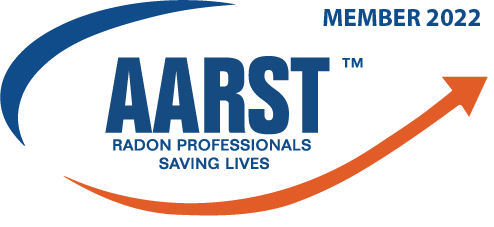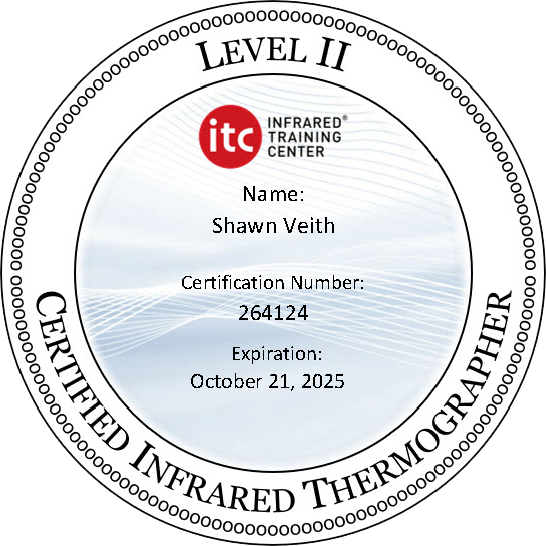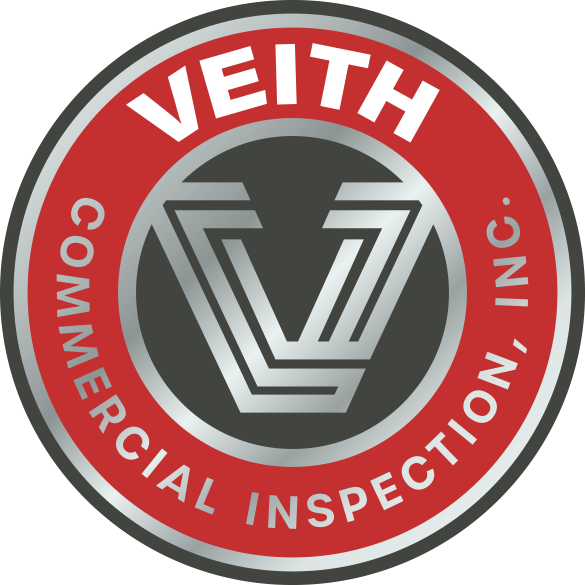Certified Master Inspector®
High-quality home inspections

Inspection Report
400 Point Quality Home Inspection
When you hire Home Inspection Master, you’ll receive a thorough, detailed explanation of our findings along with a comprehensive digital inspection report. We include thermal imaging with all of our home inspection services at no charge.
Thermal imaging enables us to see potential issues using an infrared camera that are invisible to the naked eye. Through thermal imaging, we can see excessive moisture in your home, insulation gaps, electrical problems, and evidence of pest infestations. Having knowledge of these problems gives you a unique advantage in the negotiation process and can help you avoid costly repairs to your home.
Our general home inspection services follow all InterNACHI standards of practice and review these aspects of your property:
- Basement, Foundation & Crawlspace
- Roofing, Gutters, Downspouts
- Exterior Walls, Siding, Trim, Windows
- Porches & Decks
- Attic, Insulation & Ventilation
- Garage
- Electrical Systems
- Plumbing Systems
- Built-in Appliances
- Interior Walls, Doors, Windows
- Heating and Air Conditioning Systems
- Fireplaces
Buy Back Guarantee

Thermography
Infrared thermography (IRT) is the science used to capture and process thermal information using non-contact measurement tools. This is done by analyzing infrared (IR) radiation emitted from an object whose temperature is above absolute zero. Because this wavelength exists outside of the visible spectrum of light, infrared measuring devices are required to capture and process this information.
The amount of radiation emitted by an object increases with temperature; therefore, thermography allows one to see variations in temperature. When viewed through a thermal imaging camera, warm objects stand out well against cooler backgrounds.
Thermal imaging cameras work by detecting heat signatures and displaying them as a gradient scale, with lighter colors signifying areas that are more hot and darker colors signifying cooler areas. Unlike visible light, which is the reflection of wavelengths of light off an object, infrared comes directly from the image source. This allows IR cameras to function in ways that traditional visible light cameras cannot.
The general advantages of IRT
- IRT is a non-contact technology; the devices do not to be in contact with the sources of heat creating a safer work environment.
- IRT creates a two-dimensional thermal image that allows for comparisons with visible light cameras
- IRT works in real-time, allowing high-speed scanning of images
- IRT is safe and effective
- IRT is non-invasive and will not disturb or affect the target area
For home inspectors, knowledge of training of IRT can help diagnose defects that may not have been apparent in a routine inspection, reveal further defects and underlying causes, and can make the job safer.
Infrared imaging or thermography uses specialized instruments that detect and visualize heat spectrums that allow home inspectors to follow the flow of heat through a system. Such instruments include the following:
Thermal imaging camera: An infrared camera produces a thermal picture of an area that displays heat leakage in greater detail than spot radiometers and thermal line scanners.
Applications of IRT in Home Inspections: As a home inspector, it is your job to identify serious defects, but sometimes defects may be completely hidden in plain sight. When included in routine inspections, IR cameras can assist inspectors in identifying these hidden defects. Understanding the principles of IR and how to interpret data will help you create a more complete report.
Some applications for IRT:
- Determine if insulation if lacking or deficient
- Determine if there are any air-leaks or abnormalities in heat flowing out of a building
- Determine if there is any moisture intrusion with insulation or other systems (when used with a moisture meter)
- Determine if electrical systems are overloaded or overheating
- Determine if there are leaks or defects with the roof
- Determine defects with the HVAC system

ITC Infrared Thermography Certification is the gold-standard qualification within the thermography industry. ITC certification verifies that a thermographer can:
- Operate an infrared camera
- Collect quality data
- Produce professional infrared inspection reports
- Understand the techniques and limitations of infrared thermography for specific applications
ITC certifications exceed the requirements of international infrared certification standards. All ITC courses are developed and taught by ASNT-certified instructors with advanced academic degrees and extensive field experience.
To earn an ITC thermography certification, students must attend an infrared certification / training course, pass closed-book examinations and quizzes, and submit a field assignment demonstrating understanding of their application and proper use of the infrared camera. ITC offers three levels of certification. Students maintain and advance their infrared certification through continuing education and further training.
What Is a Sewer Scope?
A sewer scope is a video inspection of the lateral sewer line leading from the house at/near the foundation and connecting to the city or HOA tap or septic tank. A lateral sewer line is the privately-owned pipeline connecting the property to the publicly-owned main sewer line, HOA tap, or septic tank.
Sewer-scoping the line can reveal blockages, damage to the pipe system, and other problems, which are vital for homeowners and home buyers to be aware of. For example, if there is a damp depression in the lawn above the sewer line, or if there is backflow into the home, or if contaminants have been discovered in the potable water supply, a sewer scope inspection can be critical to identifying and confirming these problems, which must be addressed immediately.



